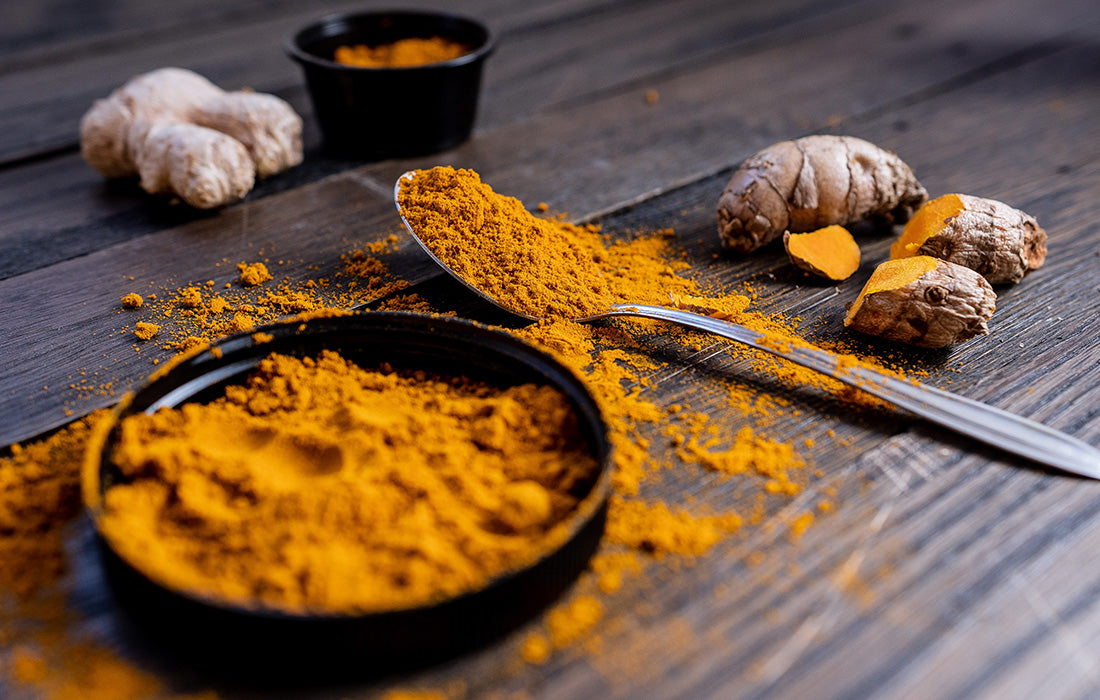We have been hearing a lot of questions lately about the rising popularity of Turmeric and if the benefits really live up to their expectations as an anti-inflammatory. And we believe that it does! So, what is Turmeric?..
Turmeric is a herb that is often used for cooking. It is the root of the South Asian plant; the Curcuma Longa, which is not just a kitchen favourite - but can also be an effective treatment for a number of health conditions.
Containing curcumin, turmeric has anti-inflammatory properties that may make it an ideal, natural treatment for skin conditions such as eczema. Turmeric works by reducing the body’s inflammation-causing enzymes and providing treatment for inflammation of the skin. In fact, numerous eczema sufferers claim that the positive effects of turmeric surpass the various medicated lotions they’ve used.
Turmeric has been considered to be incredibly valuable treatment for eczema and itching. As a natural treatment, it can provide relief for symptoms without the negative side effects that common medications carry.
Turmeric Benefits
Using turmeric can be a top treatment choice for sufferers of skin conditions. It provides the skin with a number of benefits, including reducing itching, inflammation, infection, and also protects the skin from allergens and chemicals.
The curcumin in the turmeric has anti-inflammatory properties that reduce inflammation, minimising itching, rash, and pain, whether caused by eczema, chemicals, or other skin reactions.
Turmeric also reduces histamine release and the activation of cells caused by allergens, thereby reducing allergic skin reactions. When the skin is affected, the turmeric may assist with itching and pain.
Using Turmeric
Here are some of the common ways to use turmeric:
1. Turmeric Milk
Turmeric milk, which is used to relieve both inflammation and pain, is also referred to as Golden Milk. It is easy to make and is easily consumed as a daily drink, bringing healing properties with it. Along with eczema relief, Golden Milk is known as a great way to boost immunities, as well as detox the body.
2. Oral Turmeric
While turmeric can serve as a long-term treatment option, some severe cases of eczema need more immediate relief. By simply taking turmeric orally through dietary inclusion, turmeric may work quickly as an anti-inflammatory, providing itching and pain relief from skin conditions.
One easy way to include turmeric regularly in the diet is by making Golden Paste, combining the herb with healthy fats and black pepper. Golden Paste can be consumed 2-3 times a day, a teaspoon at a time.
Turmeric can also simply be included in the diet by adding to foods, starting with ½ tsp a week, and slowly increasing the dose to ½ stop a day.
3. Turmeric Paste
Instead of taking turmeric orally, you can create a topical paste and apply it to affected areas. Mix turmeric with coconut oil and rub it where needed, leaving it for about a half an hour. Then, wash it off with cool water.
So what's the verdict?
Turmeric is a safe and effective treatment that can be used for eczema and other skin conditions. It is natural and easy to take, making it a great treatment option for anyone looking for the best way to relieve pain, itching, redness, and any other symptoms related to eczema or an allergic reaction. When used orally, turmeric may also house some great anti-inflammatory properties.
Have a question?
Reach out to us in the chat box, or contact us on care@13seeds.com.au!







